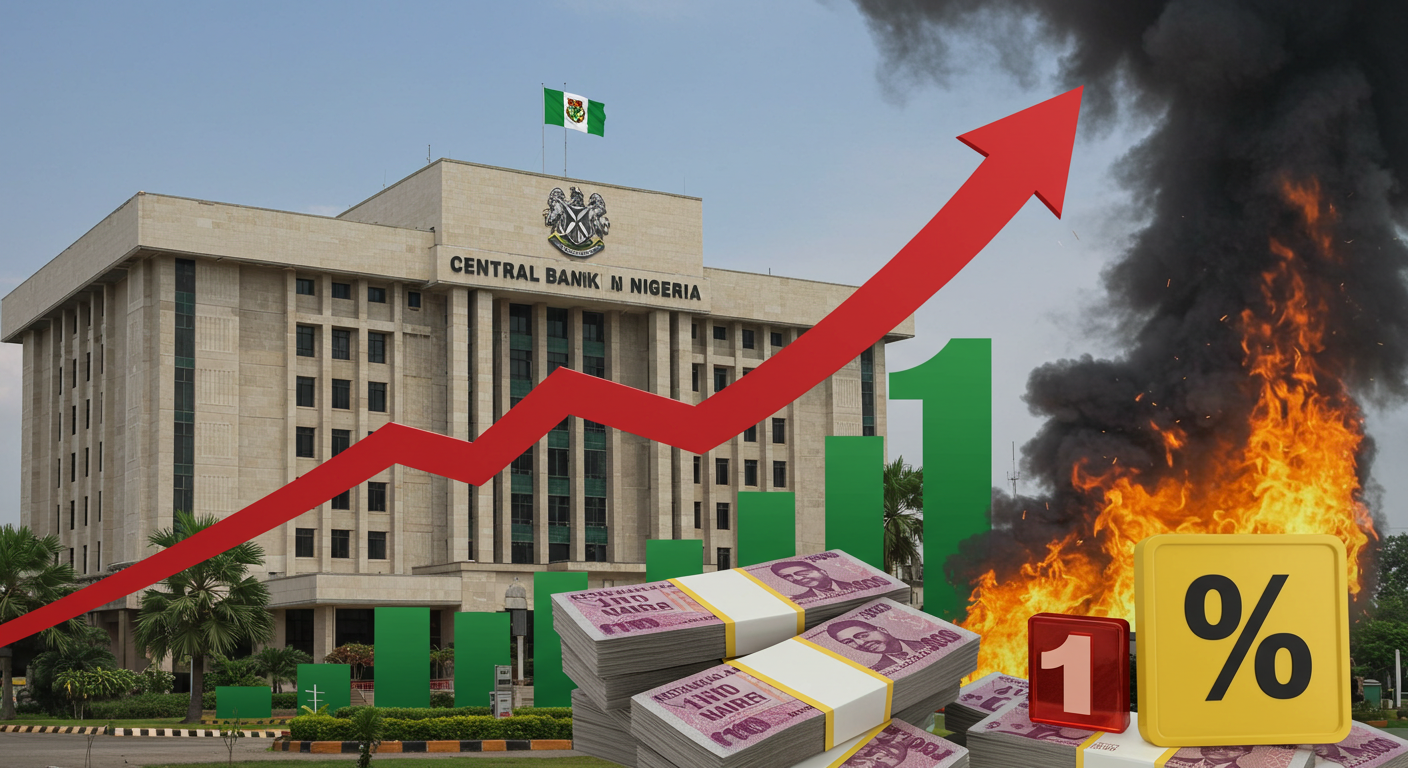By Mofeoluwa Awe
The Central Bank of Nigeria (CBN) raised a total of N1.008 trillion during its Open Market Operations (OMO) auction on Friday, April 25, 2025, with strong investor demand resulting in a 102% oversubscription.
The auction, which began with N500 billion in two maturities, drew total bids of about N1.4 trillion as investors tried to take advantage of high-yield government instruments amid growing inflation and an expanding money supply.
This decision by the CBN reinforces its aggressive monetary tightening approach, which aims to absorb surplus liquidity and reduce inflationary pressures that have persisted despite high interest rates and a record-high cash revenue ratio. Investors demonstrated a clear preference for longer maturities, with the 319-day OMO bill due on March 10, 2026, ranking as the most popular instrument. It received total subscriptions of N1.062 trillion, more than four times the CBN’s offer of N250 billion. The central bank eventually allocated N688.30 billion at a stop rate of 22.73%, with bid rates ranging from 20.39% to 23.75%.
Similarly, the 298-day bill, which matures on February 17, 2026, drew bids of N329.54 billion against the offered N250 billion. The CBN allotted N319.54 billion at a stop rate of 22.37%, with bid rates ranging from 20.45% to 23.75%. In sum, the CBN raised N1.008 trillion, more than double its initial offer, indicating that the financial system remains liquid despite the central bank’s tightening policies.
The OMO sale comes at a time when Nigeria’s broad money supply (M3) is rapidly increasing, confounding the CBN’s efforts to limit liquidity using techniques such as the world’s highest cash reserve ratio of 50%. According to CBN data, M3 increased to N114.32 trillion in March 2025, up 24% year on year from N92.19 trillion in March 2024. On a month-on-month basis, money supply climbed by 3.2%, up from N110.71 trillion in February. The gain was principally driven by a 38.9% increase in net foreign assets to N45.17 trillion, showing increased capital inflows and external liquidity.
However, net domestic assets declined by 11.7% to N69.05 trillion, demonstrating that while local liquidity is being constrained, international inflows are more than offsetting the effect.
Despite stricter regulations on banks through increased cash reserve requirements and a high benchmark interest rate of 27.5%, total system liquidity remains strong. Excess liquidity is driving up demand for government securities and contributing to ongoing inflationary pressures. Nigeria’s inflation rate remains stubbornly high, owing to rising food prices, transportation costs, and energy bills. The National Bureau of Statistics stated that headline inflation increased to 24.23% in March 2025, from 2.04% in the prior month, indicating rising demand and increasing input costs.
The fast rise of the money supply has raised concerns that inflation will spiral further if not curbed. Friday’s OMO auction demonstrates the CBN’s persistent reliance on market-based measures to manage surplus liquidity. J.P. Morgan, a US investment firm, recently recommended investors to unwind long positions in Nigeria OMO bills, warning that global concerns like as decreasing oil prices and rising trade tensions could exacerbate the country’s macroeconomic vulnerabilities. However, the substantial investor turnout, particularly for longer-dated instruments, indicates that financial institutions are still willing to contribute money in exchange for high rates while protecting against inflation.
OMO bills continue to play an important role in allowing the CBN to influence short-term interest rates and remove excess cash from the system. By issuing high-yield notes, the central bank hopes to stabilise liquidity, slow inflationary momentum, and steer market expectations ahead of its next monetary policy announcement. Attention now goes to the Monetary Policy Committee meeting on May 19-20, 2025, when the CBN is expected to consider additional tightening measures. After holding the policy rate at 27.5% in February, the central bank may be forced to move strongly in May in response to both rising inflation and an expanding money supply.
The difficulty for the CBM remains balancing the need to contain inflation against the risk of over-tightening, which might hinder credit growth and increase borrowing costs for firms and families.
Read also: Guinness Nigeria reports N6.7 billion profit in Q3 FY25 with 72% Revenue Surge







Comment
No comments found.